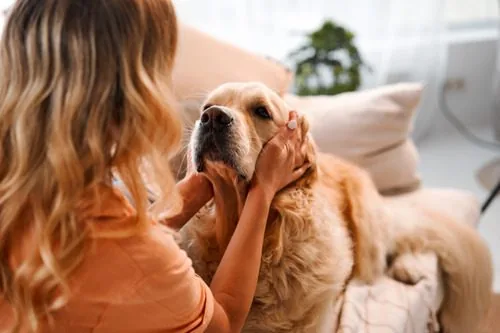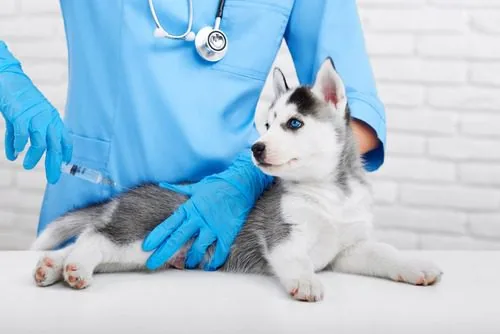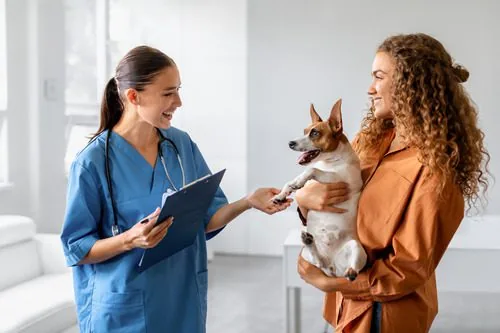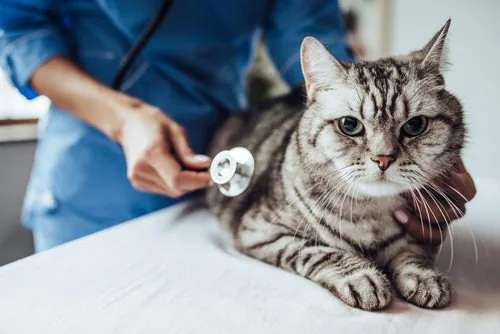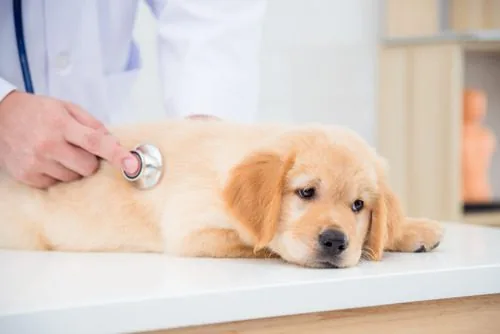Why Is My Cat Sneezing – And How Can I Help?
Cat sneezing: although it can be cute, we all know how uncomfortable it is to sneeze! Cats sneeze for a variety of reasons, and with their heightened sense of smell, they can be more prone to sneezing than humans are. So, why is my cat sneezing and what can I do to help?
Cats will often sneeze due to allergies, infections, and even a foreign object in their nose. Seeing the vet is the best option when your cat’s sneezing is becoming a problem, but home remedies include deep-cleaning the home and using a humidifier, cleaning your cat with pet-friendly wipes, and giving them a warm, wet meal to open up the nasal passage.
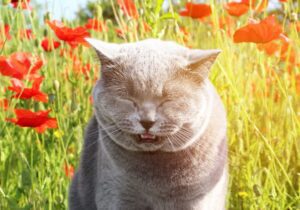
Why is My Cat Sneezing?
Cats have a much better sense of smell than we do and they use their nose to explore the world. As a result of this, a cat’s nose and nasal package can pick up more things than humans can, causing them to sneeze.
Allergies, infections, foreign objects, and even rhinosinusitis may be the culprit to why your cat is sneezing excessively.
Allergies
Sneezing in cats is the most common side effect of allergies. Cat allergies can be caused by seasonal allergens, vaccines, medication, and even food.
Seasonal Allergies
Just like humans, cats can get seasonal allergies. Pollen, dust mites, and even mold can cause your cat to have allergic reactions, most notably sneezing. Seasonal allergies occur in the spring and last until early summer. If your cat seems to have sneezing fits this time of the year, seasonal allergies may be the culprit.
Vaccinations or Medications
A cat’s vaccinations or medications can make them sneeze, especially if it is administered nasally. Any time your cat receives a new medication or vaccination, it’s important to watch them carefully for seventy-two hours.
Although sneezing may be a normal side effect, further symptoms can be a cause for alarm. If your cat is experiencing blood, mucus, or discharge coming out the eyes or nose, or your cat loses their appetite, call your vet.
Food
Cats are very particular with their diet. If their diet has been changed to something their body is not familiar with, they can have an allergic reaction, including sneezing, as a result.
If your cat starts sneezing after a food change, it would be best to transition them back to their original diet.
Bacterial Infection
In some circumstances, a toothache or bacteria infection may cause your cat to sneeze. A build-up of bacteria in the back of the cat’s mouth can get into the nasal passage, which will ultimately cause sneezing.
In most cases, your veterinarian can administer antibiotics to fight the bacterial infection. A bigger issue, such as a dead tooth, may require a trip to the vet. Be sure the vet you visit specializes in pet dental care.
Upper Raspatory Infection
It might seem strange, but sneezing can indicate an upper respiratory infection. In fact, it’s a big symptom of one due to the cat’s body trying to expel the infection. Other symptoms may include coughing, having discharge around the eyes, excess swallowing, decreased appetite, lethargy, fever, and dehydration.
Cats with a higher susceptibility to URI’s are kittens, immunosuppressed cats, unvaccinated cats, and senior cats. Since many URI’s are contagious, it’s important to keep sick cats away from healthy ones to prevent the healthy ones from getting sick.
A call to the vet is definitely in order if you suspect a respiratory infection. If left untreated, URI’s can cause pneumonia, chronic breathing issues, or even blindness. When in doubt of how bad your cat’s URI is, bring them to the vet!

Foreign Object
If your cat is an outdoor cat, they might be exposed to something foreign while exploring. This foreign object, such as grass, a flower, or an allergen, can get stuck in the cat’s nose. To expel that, cats will sneeze, just as we would if we get something foreign up our nose. If they aren’t able to expel whatever is up their nose, they may start to develop an infection.
This can happen to indoor cats too, who may pick up something foreign from around the house.
Rhinitis or Sinusitis
Finally, your cat might be sneezing because of something called rhinosinusitis, which is a combination of rhinitis and sinusitis. Other symptoms include pawing at the face, reverse sneezing, labored breathing, snoring through the mouth, and clear nasal discharge.
This is another thing that will be best looked at by your vet to diagnose and treat.
How to Help Your Sneezing Cat
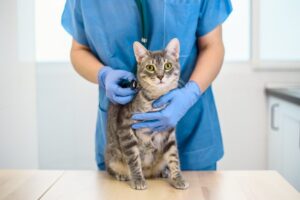 Although treatment can vary based on the reason why your cat is sneezing, seeing a vet is always a good idea. This is further recommended if your cat is exhibiting additional symptoms beyond the sneezing.
Although treatment can vary based on the reason why your cat is sneezing, seeing a vet is always a good idea. This is further recommended if your cat is exhibiting additional symptoms beyond the sneezing.
If the sneezing is not paired with other symptoms, or there is not a vet available to see, there are a couple at-home remedies you can try.
Remember to never give your cat an over-the-counter drug without consulting with your veterinarian first!
Use Pet-Friendly Wipes
Cleaning the cat with pet-friendly wipes is a great start. Be sure to clean extra around their nose, mouth, and eyes!
Clean the House
Although it may seem obvious, giving the house a deep-clean can be a great way to get rid of the allergens in the air.
A humidifier can be a great tool as well. A humidifier will dampen the air and the particles in it, essentially weighing them down so less allergenic particles enter the cat’s nasal passage.
Try Warm, Wet Food
If your cat hasn’t been able to eat due to the sneezing, feeding them warm, wet food will be a great alternative. The warmth in the food will open the cat’s nasal passage and can give them a temporary break from the sneezing so they can enjoy a hearty meal!
Conclusion
Your cat is like family, and you want to make sure that they are happy and comfortable all of the time. If your cat is sneezing uncontrollably or for a long period of time, it would be best to see a veterinary professional to rule out any major issues.
If you are having problems with your cat sneezing in the Terre Haute, IN area, reach out to Brown Veterinary Hospital at 812-645-0715 or schedule an appointment!
Recent Posts
About Brown Veterinary Hospital
We are here to serve as your partner in keeping your four-legged family member healthy, ensuring you have all the tools you need to provide them with a lifetime of outstanding care. Our animal hospital in Terre Haute offers a full range of services to nurture and extend your pet’s life, from wellness and preventative care to critical care, exotic pet care, and dermatology.

